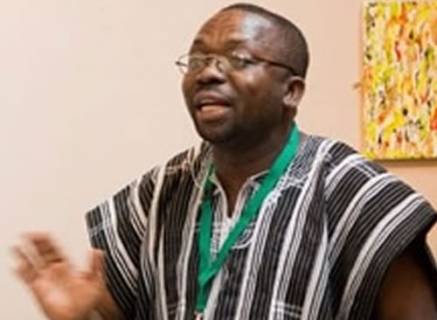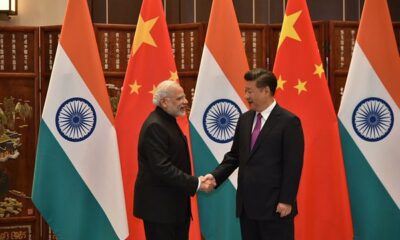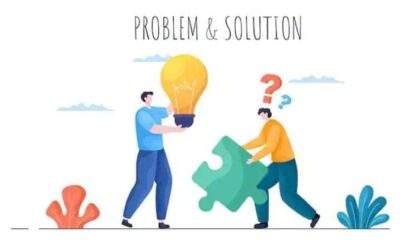Global Issues
Lives of Alleged Witches in Africa Matter – A Report -By Leo Igwe

This is the first activity report of the Advocacy for Alleged Witches (AFAW). The report is being issued at a time that the world is grappling with the coronavirus pandemic. Covid-19 is a health condition that could trigger witchcraft allegations in communities. First, it is important to explain what informed the founding of AFAW and how its message has been received in the first three months of 2020
AFAW was launched in January in response to pervasive cases of witch persecution and related abuses in Africa. AFAW’s main goal is to supply the missing link in the activism and campaign for the eradication of witch-hunting in Africa. However, the mission faces so many challenges. First of all, African witchcraft has largely been misrepresented in the West and in the world. And many institutions have bought into this misrepresentation. Many western NGOs have cashed in on the misconceptions and are using exoticizing and patronizing campaign approaches that tend to perpetuate and not resolve the problem of witch persecution. Witchcraft has largely been presented as a mechanism that helps African societies to function, as a socially stabilizing force. This mistaken anthropological position, which is dominant in ‘scientific’ and popular western literature, has hurt the advocacy for alleged witches in the region. This misrepresentation has led to a lackluster campaign by the UN agencies and Western NGOs who fund campaigns to eradicate child and adult witch accusations in the region. This approach must change because it’s been largely unproductive and ineffective. The mistaken idea about witchcraft in Africa must be abandoned if we must see an end to witch persecution in Africa as envisioned by AFAW.
So witch persecution in Africa has not been given the attention that it deserves. It has not been addressed with the sense of urgency that the issue demands. The lives of alleged witches in Africa have been treated as if they are inconsequential. For some reason, witchcraft imputation in Africa has been treated like a domesticated useful facility, not a wild and destructive phenomenon that wreaks havoc in the lives of people across the region. Thus the campaign against witch persecution in Africa has been dominated and driven by agencies, organizations, and activists that have refused to call witchcraft belief by its name: myth or superstition. In some cases, there are organizations that have re-missionization agenda and are more interested in using witch persecution in Africa as a medium for re-evangelization than ending this vicious phenomenon. In other cases, there are organizations that have, in trying to avoid being labeled racist or neocolonialist, resolved not to designate witch persecution as an irrational superstitious practice that Africans should abandon.
However, COVID-19 has provided a great lesson in global campaigns and activism. As in the COVID-19 pandemic, a campaign against witch persecution must be based on fact and science, not on fiction and superstition. Evidence-based propositions are and should be the guiding principles. So in situations where religious beliefs or practices pose a threat or undermine the advocacy against witch persecution, such practices must be called out and be critically examined, whether they be traditional, Christian, Islamic or Bahai. In situations where religious actors are linked to the persecution of witches, such religious actors must be excoriated. Refusing to do so is a betrayal of the cause and campaign against witch persecution.
Now some activists and organizations do not want to openly and publicly take on the negative role of religion in witch persecution in Africa because they do not want to be perceived as atheists or disbelievers in God. They do not want to make statements that imply skepticism such as stating that witches do not exist as believed by the people. They are of the view that such statements will alienate
Africans and their Christian partners in the campaign. Look, regarding the COVID-19, WHO has issued guidelines, not based on what aligns with the cultures and religions but what would help contain the virus. What actually alienates people is being dishonest or ambiguous about one’s position on the existence and non-existence of witches and by implication other magical entities. Stating that witchcraft is superstition is based on fact, not fiction, and is the most effective way to end witch persecution in the region.
Again it takes being critical or better entertaining some disbelief to campaign against witch persecution in Africa even if one is a Christian evangelist or theologian who does not believe in the African witch. Thus in this campaign, disbelief or critical thinking is an asset, not a liability. And pretending to believe or lying about one’s position on the existence or non-existence of witches as believed by Africans sends a wrong signal about the intention and mission of an activist or an organization, and attracts people of similar interests to the campaign.
Furthermore, many western NGOs and activists have refrained from criticizing harmful traditional, cultural and religious practices such as witch persecution, witch hunting or witch trial because they do not want to offend the cultural sensibilities of Africans. They regard this as a gesture of respect for the African culture and religion. It is not. In fact, these NGOs withhold funding or threaten to severe funding for African counterparts that do not comply. Religious, cultural practices that harm other human beings do not deserve respect. They should be critically analyzed and abolished. A critical examination of harmful beliefs and practices is an intellectual duty to Africa and the world.
It is important to make it clear that AFAW is not an anti religious initiative. Advocacy for Alleged Witches is not a campaign that is out to abolish religion, or to get people not to believe in God.
There are religious persons who are contacts of AFAW in some countries. Wherever religion is part of the problem, it will be noted and addressed. And wherever it is a resource it will be tapped into to realize a witch hunting free Africa. AFAW seeks to work and partner with religious individuals and faith-based organizations that are committed to eradicating this dark and destructive phenomenon. AFAW exists to provide a robust response to witch persecution in Africa and to realize a critical mass of African advocates for alleged child and adult witches by 2030.
Here are a few examples of key achievements of AFAW in the past three months.
AFAW released a decade of activism declaration and the document has been translated into so many languages
including English, French, Swahili, Hausa, Igbo, Yoruba, etc The
document outlines the vision and objective of AFAW emphasizing AFAW’s
humanist, skeptical and critical thinking approach to tackling witch
persecution.Media visits and interviews
Advocates visited many media agencies in Lagos, Oyo, Edo, Rivers and Akwa Ibom states to inform them about the mission and vision of AFAW. The visits featured face to face meetings and exchanges with journalists and reporters, and sometimes debates on the existence and non existence of witches. Some of the journalists were of the view that, while children could not be witches, adults could be. The media establishment constitutes a critical platform for the education and enlightenment of the public. Media agencies often publish news and commentaries that reinforce witchcraft beliefs and magical thinking. It is pertinent that AFAW partners with print and electronic media organisations in dispelling and weakening mistaken ideas that inform witchcraft imputation and witch hunting. Incidentally, AFAW’s goal will not materialize if AFAW must pay for all media appearances and publications. This is because some of the media stations insisted on being paid before they could publish or broadcast anything on the advocacy against witch persecution. Reports on witchcraft beliefs and accusations are published at no costs. Media agencies that put a price on disseminating information that educate and enlighten the people are indirectly hampering efforts to eradicate witch persecution in the region. In the past three months, local and international media organisations such as the BBC, The Punch, National Light contacted AFAW for interviews, others have published opinions and reports on AFAW’s campaign and activities.
Child orphanages/shelters for child witch victims
In March, I visited child orphanage homes and shelters for victims of child witchcraft allegations in Akwa Ibom and Cross River states. I visited the child orphanage center at Eket. A Christian religious organization, The Way to the Nations, manages this home. This orphanage has 34 children and most of them are male. In fact of the children at the shelter is looking after a girl-child victim of witchcraft accusation that I rescued in 2011. She is now in a secondary school. I also visited the African Children Aid and Development Foundation where I met Hope, the child witch victim which a Danish woman rescued in 2016. I was also at the orphanage home that the state ministry of social welfare established in Uyo and later visited the emergency shelter that the Basic Rights Counsel Initiative has set up in Calabar. In all these places I saw first hand the laudable work that those who are managing these homes were doing. At the same time, I noted a looming crisis. The resources at these centers are overstretched. The managers noted that they continued to get calls to rescue child witch victims. These centers, except the state orphanage, rely on donations from well meaning individuals but the donations they receive can no longer match their care duties and responsibilities. In fact at one of the homes, one of the care givers said that they might soon start rejecting child witch victims. In fact, without sustained support, these homes would soon run out of resources and would be unable to meet up with their duties and responsibilities to the children.
Campus Programs
AFAW has a campus program which aims to rally students against witch persecution and killing. The campus initiative became necessary after Christian students protested the organization of an academic conference on witchcraft at the university of Nigeria Nsukka last year. Two events on “Who is afraid of witchcraft?” have been organized at the Universities of Ibadan and Nsukka in February and March respectively. There have been request to organize the event in other campuses before the outbreak of the pandemic. To realize a witch hunting free Africa tomorrow, we must invest in the students of today.
Contact with Police
The
police are often invited to intervene, investigate and prosecute cases
that are related to witchcraft. It is important for AFAW to forge an
effective alliance with the police establishment. I visited the Lagos
State Police Command in Ikeja to follow up on the case of a girl
who was burnt after being accused of witchcraft. AFAW is also in
contact with the lawyer who is handling the case of two child witch
victims in Plateau state. AFAW also contacted the Malawi police
authorities following reports of attacks on suspected witches across the
country. The Malawi Police promised to investigate the incidents.African Network
AFAW
aims to realize a critical mass of advocates in all African countries.
So AFAW is growing a network of activists and contact organisations that
advocate against witch persecution and other superstition based abuses
in other African countries. In the past three months, AFAW has contacts
in Nigeria where I operate from, Ghana, Kenya, Tanzania, Malawi, South
Africa, Zambia, Sierra Leone, and Zimbabwe.Outbreak of Covid-19
The pandemic presents a challenge as well as an opportunity. As a challenge, the pandemic would cause restriction of movements and congregation. So aspects of the project such as the awareness campaigns/town hall meetings will wait until the situation is under control. But other aspects of the project such as providing leadership and liasing with relevant stakeholders in addressing panic, anxieties and misinformation about the pandemic would go on. The pandemic presents an opportunity for AFAW to help prevent allegations of witchcraft. Witchcraft allegations are often ways people make sense of uncertainties and anxieties over terminal and incurable diseases. Thus the pandemic presents an opportunity to correct misinformation about the cause and spread of the coronavirus especially attributions of the pandemic to occult, magical or witchcraft forces.
Support AFAW
Since the founding of AFAW, we have received reports of witch persecution and witch hunting in Nigeria, Zambia, Zimbabwe, and Malawi. AFAW needs your support to remain active and to fulfill its aims and objectives. You can choose to engage aspects of AFAW’s mission especially in documenting cases of witch persecution across region and lobbying relevant local regional and international actors. You can also decide to support the advocacy campaign in a particular country or region. AFAW seeks institutional support and fellowships with universities and institutes to help compile reports, research and document cases of witch persecution. AFAW needs financial support to facilitate interventions, rescue and rehabilitation of victims of witchcraft allegations. AFAW seeks sponsorships for its public education and enlightenment programs, and support the growing network of advocates across the region. Individuals and organisations that are interested in supporting and collaborating with AFAW should contact us at advocacyforallegedwitches@gmail.com ; nskepticleo@yahoo.com Tel +2349039908664.



















